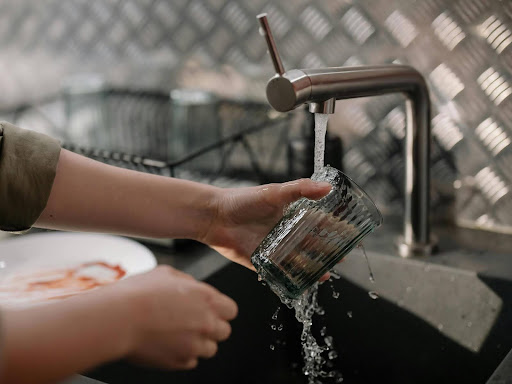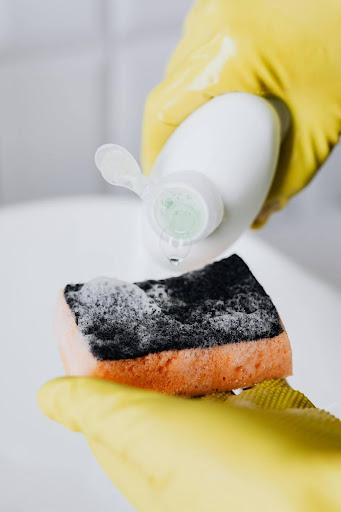Hard water is a common but often overlooked issue that affects millions of households. Characterized by high concentrations of calcium and magnesium minerals, hard water may not pose significant health risks, but it can create a wide range of challenges in everyday cleaning. From leaving stubborn spots on dishes to shortening the lifespan of appliances, the effects of hard water can be frustrating and costly.
Understanding how hard water impacts dishwashing and cleaning tasks is the first step toward finding effective solutions. By identifying the signs and exploring methods of treatment, homeowners can improve cleaning results, reduce maintenance headaches, and enhance household efficiency.

How Hard Water Affects Dishwashing Results
Dishwashing is one of the most obvious areas where hard water leaves its mark, literally. After running a load of dishes, many homeowners notice cloudy glassware, white spots, or streaks that remain even after drying. This residue comes from mineral deposits left behind when hard water evaporates during the rinse and dry cycles.
Beyond appearance, these deposits can make dishes feel gritty or unclean, even though they’ve been through a full wash cycle. The buildup can become more stubborn, requiring extra scrubbing or special cleaning products to restore dishes to a spotless shine. This extra effort adds both time and cost to household chores, making dishwashing more of a hassle than it should be.
Solutions for Cleaner Dishes
The good news is that homeowners have options to improve dishwashing outcomes even in areas with hard water. One of the most effective approaches involves preventing white residue on dishes with water softening, which reduces the mineral content before it enters the dishwasher. Softened water rinses away detergents more effectively, preventing the chalky film that often clings to glassware and silverware.
Other solutions include using detergents designed specifically for hard water, which contain additives to combat mineral interference. Rinse aids can help water sheet off surfaces more effectively, reducing the appearance of spots. While these options offer improvements, water softening remains the most comprehensive fix, as it addresses the problem at its source rather than just masking the symptoms.
The Strain on Cleaning Appliances
It’s not just dishes that suffer from hard water. Dishwashers themselves can experience long-term damage from mineral buildup. Limescale deposits accumulate on heating elements, spray arms, and other internal components. This buildup reduces efficiency, increases energy use, and can shorten the lifespan of the appliance.
Similar problems occur with washing machines, coffee makers, and other appliances that regularly use water. The constant exposure to hard water minerals means more frequent maintenance, costly repairs, and even premature replacement. Addressing hard water at the household level helps protect these investments and ensures appliances run smoothly for years to come.
Hard Water and Household Cleaning Tasks
Hard water doesn’t limit its effects to the kitchen. Around the home, it makes virtually every cleaning task more difficult. When used for laundry, hard water can leave clothes feeling stiff and dull, as detergents struggle to dissolve properly and rinse away. Soap scum in showers and bathtubs is another familiar sign, as the minerals react with soap to form sticky residues that cling to surfaces.
Even simple tasks like mopping floors or wiping countertops can be affected. Instead of leaving a streak-free finish, hard water often leaves behind spots or films that require additional effort to remove. These inefficiencies create more work and increase the need for stronger cleaning products, adding to household expenses.
Health and Skin Considerations
While hard water is generally safe to drink, it can have noticeable effects on skin and hair. The mineral content interferes with soap and shampoo, making it harder to rinse cleanly. This often leads to dry, itchy skin and hair that feels heavy or lifeless. For individuals with sensitive skin or conditions like eczema, hard water can exacerbate irritation and discomfort.
In the context of cleaning, this means that hand-washing dishes or scrubbing surfaces can be harsher on the skin. The constant exposure to hard water minerals strips natural oils, leaving hands dry or cracked. Switching to softened water often brings relief, allowing soaps to lather more easily and rinse away completely.
The Environmental Impact of Hard Water
The challenges of hard water extend beyond households and into the environment. Because cleaning with hard water often requires more detergent, soap, and rinse aids, chemical usage increases. These extra products eventually enter wastewater systems, contributing to environmental stress.
Appliances that operate less efficiently due to limescale buildup consume more energy, increasing the household’s carbon footprint. By treating hard water and improving cleaning efficiency, families benefit financially and reduce their impact on the environment.
Long-Term Financial Considerations
One of the hidden costs of hard water is its effect on household budgets. From higher energy bills caused by inefficient appliances to the ongoing expense of extra cleaning products, the financial impact adds up. Mineral buildup in plumbing can even lead to reduced water flow or pipe damage, resulting in costly repairs.
Investing in solutions like water softeners may seem expensive upfront, but the long-term savings often outweigh the initial cost. Families spend less on detergents, extend the lifespan of appliances, and enjoy lower utility bills. Viewing water treatment as an investment rather than a luxury highlights its practical financial benefits.
Practical Steps for Homeowners
For homeowners dealing with hard water, the first step is identifying the severity of the problem. Simple water testing kits or professional assessments can measure mineral content and help determine whether a water softener is necessary. Once the problem is confirmed, choosing between whole-house water softeners, dishwasher-specific treatments, or a combination of solutions depends on budget and household priorities.
Alongside treatment, small adjustments can make cleaning easier. Using vinegar-based rinses, installing faucet filters, and selecting detergents designed for hard water all help mitigate the effects. By combining practical measures with long-term solutions, homeowners can reclaim efficiency and enjoy cleaner results across every part of their household.

Hard water may seem like a minor inconvenience, but its impact on dishwashing, cleaning, appliances, and even personal comfort is significant. From white residue on dishes to limescale in machines and higher household costs, the effects add up quickly. Fortunately, solutions like water softening and specialized cleaning strategies offer effective ways to combat the problem.
By addressing hard water directly, homeowners protect their appliances, save money, and make everyday tasks simpler and more satisfying. Cleaner dishes, shinier surfaces, and a more efficient home are just a few of the rewards that come from tackling hard water head-on.